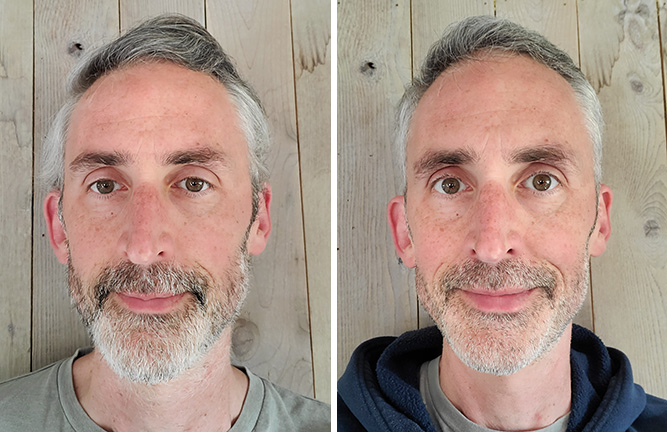
Before I explain why I decided to challenge myself to a month without alcohol or added sugar, and what happened, let’s take a quick look at the photos above.
I always find other people’s before and after photos fascinating, so I think it’s a fitting way to start – even if the change isn’t particularly dramatic. The photo on the left is me on April 4th 2021 – the day before I gave up sugar and alcohol. And on the right, one month later on May 4th 2021.
I know I made the comparison less effective by having a haircut between the photos, but I think I look noticeably brighter, which is exactly how I felt. And maybe it was an overall improvement in mood that made me feel like staring proudly into the camera.
I’ll take another photo next month, as I plan on extending the challenge to two months to see if there are more noticeable changes in my sleep tracking data, which was one of the things I was most interested in (I’ll be talking a lot about the impact on my sleep in this article).
But in general, despite sometimes missing having a cold beer with my friends, I’m feeling really good. So this might just be the beginning of a much longer experiment.
Anyway, let me start at the beginning and explain why I decided to do this, what I did, and what I was hoping to achieve.
Why, how, and what I hoped to gain
Why alcohol and sugar at the same time?
Just to be clear, I didn’t give up alcohol because I felt like I had a serious problem with alcohol. I never get drunk, but I do like a cheeky glass of wine or two with most dinners, and sometimes a few beers on the weekend. Even though that’s technically more than the recommended weekly units, I still consider myself to be a relatively moderate drinker.
The main driving force behind the decision was actually a long-standing desire to see what would happen if I quit sugar. And since the alcoholic drinks I like tend to have a lot of sugar, it made sense to give that up at the same time.
Why? Well, this is where I have to talk openly about a few issues for my story to make sense.
Here are some of the main problems I’d been having that I was hoping could be improved with the right lifestyle changes:
- I’ve had a problem with dry skin for years and it drives me mad. In addition, my fingertips often split open and take weeks to heal. Despite just looking like deep paper cuts, they are unreasonably painful.
- I regularly get painful mouth ulcers that take a long time to disappear. They always seem to pop up when I eat chocolate.
- I often feel bloated and uncomfortable, especially after a big meal with a desert or if I snack on junk food in the evening.
- My energy levels vary wildly during the day. I can go from feeling like I could go for a long run to needing to lie down on the sofa in a matter of minutes.
- My mood fluctuates more than I’d like it to, and I’m prone to mild anxiety. I often wake up feeling grumpy and ‘need’ strong coffee to get going too. Perhaps I’ll blame that one on the alcohol though…
- I’m fairly sure that occasional compulsive snacking in the evening affects my sleep. And alcohol is known to have a negative impact on sleep. So I was keen to know if reducing both would improve my sleep.
In addition, I thought it was about time I put my money where my mouth is when it comes to sleep tips. Since I often talk about good sleep hygiene on this website, I wanted to see if I could demonstrate the benefits of consuming less alcohol and less sugary food by testing it on myself.
Just my experience – not advice
At this point, I want to briefly clarify that my intention isn’t to try to convince you that you should also give up alcohol and sugar – in case you were wondering how preachy I might get! I’m going to talk openly about my experience, and you can take from it what you will.
What I gave up exactly
I decided not to cut down slowly, but to just stop drinking all alcohol from one day to the next. I didn’t think I was a heavy enough drinker to warrant cutting down slowly, and I think I got that right.
As for the sugar, I pretty much went cold turkey on day one. No more sugary drinks, sweets, chocolate, biscuits, cake, and sugar in tea or recipes. I also stopped eating other easy targets where sugar lurks, like ketchup, most breakfast cereals, and fruit yoghurt.
I reduced how much high sugar fruit I ate, like mangoes and bananas, and ate more berries and other lower sugar fruits instead.
This was a learning curve for me – I just didn’t know which fruits had the most and least natural sugar. Could you put the fruit in the photo below in order of sugar content? I certainly couldn’t until I read up on it!
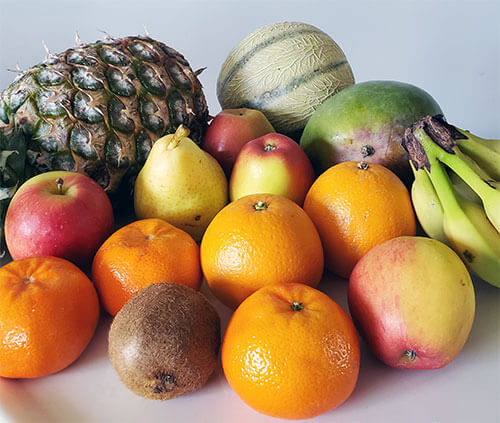
I diligently checked all food labels and only bought food with under 5g per 100g of sugar, and only if I really needed it for cooking. Otherwise, I cooked all my meals with fresh ingredients so I knew exactly what went into them.
It took a few days to address the carbs, but I eventually swapped out white rice, pasta and bread etc for less processed versions, such as brown or wild rice and rye bread.
I also decided to avoid all artificial sweeteners too after the first couple of days when I realised I just didn’t like how any of them tasted.
There was more complexity and choices to be made on the sugar front, but those points did most of the heavy lifting in reducing my sugar intake.
How I tracked my sleep during the month
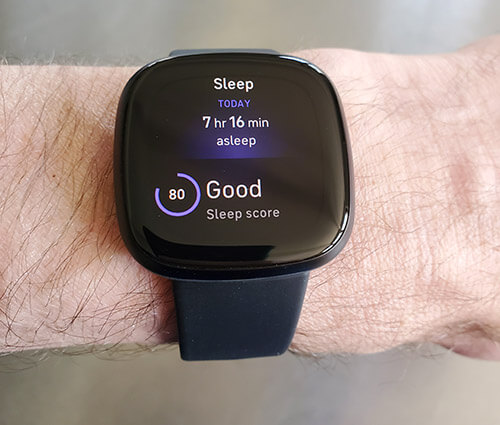
At the end of the article, I’ll go over the different benefits I feel I got out of the month. But since this is a sleep website, I’m going to first dive deeper into my sleep stats over a six week period first.
As well as describing in anecdotal terms how I think I slept, I also have some real-life data based on my sleep tracker. Since I spend a lot of my time testing and reviewing sleep trackers on my blog, I thought this would be interesting to share.
I wore a Fitbit Versa 3 every night for the two weeks before the day I quit alcohol and sugar, and for a month afterwards. And as always, there’s a lot of data to inspect each morning on the Fitbit app.
There were a couple of nights where I forgot to charge it though (oops…), so the overall averages extend to slightly longer than two weeks in some of the tables below. But I don’t think that matters too much, as it’s the averages I’m most interested in.
Please keep in mind that no sleep tracker is 100% accurate, especially when it comes to sleep stages. So for that reason, I’m going to start with how I felt because that’s arguably what matters most anyway.
Sleep tracking results
How I think I slept after quitting alcohol and sugar
I’m not going to lie, the first few days were kind of tough. The first day wasn’t too bad, but I had sporadic headaches for several days starting on day two, my guts were unhappy, and I felt ready for bed around 8pm most nights!
However, right from the first day I felt like I slept better. I didn’t wake up so often in the night, and woke up most mornings feeling pretty refreshed, without the feeling that I needed two or three strong coffees to reach ‘normal’ functioning.
There were still a few not so good nights, which is typical for me. But overall, one of the main benefits in my mind was that I was more content with the quality of my sleep.
So if that’s the case, surely it would show up in my sleep tracker data too?
Let’s take a look.
My sleep in the 2 weeks before I quit
First of all, here’s how much sleep I had on average, along with with the Fitbit sleep score.
Just to reiterate, all sleep tracker stats need to be taken with a grain of salt. But honestly, it’s all I’ve got in terms of hard data and interesting to look at all the same.
| Sleep each night (hrs:mins) | Fitbit sleep score |
|---|---|
| 6:21 | 80 |
| 6:17 | 81 |
| 6:38 | 86 |
| 6:12 | 80 |
| 7:40 | 78 |
| 5:47 | 74 |
| 6:55 | 80 |
| 6:18 | 77 |
| 6:43 | 82 |
| 6:07 | 76 |
| 7:08 | 77 |
| 6:18 | 74 |
| 6:16 | 71 |
| 6:52 | 86 |
| Average: 6 hrs 32 mins | Average: 79 |
As you can see, my average sleep per night for that two weeks was 6 hrs 32 mins. This doesn’t surprise me, as I’m only too aware that I get less than seven hours most nights. The sleep score of 79 is fair and doesn’t cause me much concern. But I do think a little more sleep would be better for me.
Weeks 1 and 2 after quitting
Now let’s see what happened to my total sleep time and sleep score in the first two weeks without sugar or alcohol.
| Sleep each night (hrs:mins) | Fitbit sleep score |
|---|---|
| 7:40 | 87 |
| 7:18 | 83 |
| 7:48 | 86 |
| 6:40 | 81 |
| 8:18 | 87 |
| 6:59 | 81 |
| 5:55 | 76 |
| 7:06 | 79 |
| 5:32 | 75 |
| 6:17 | 77 |
| 6:52 | 84 |
| 7:09 | 86 |
| 4:44 | 69 |
| 7:00 | 85 |
| Average: 6 hrs 48 mins | Average: 81 |
There’s a clear improvement in the overall sleep time. 6 hrs 48 minutes is an average of 16 minutes more per night, and the sleep score went up two points to 81.
It’s a positive improvement that reflects my own feeling that I slept better.
Weeks 3 and 4 after quitting
I was expecting my sleep to improve even move in weeks three and four. Let’s see if I was right.
| Sleep each night (hrs:mins) | Fitbit sleep score |
|---|---|
| 6:32 | 82 |
| 6:48 | 85 |
| 7:53 | 92 |
| 6:30 | 81 |
| 6:23 | 82 |
| 6:20 | 79 |
| 6:11 | 83 |
| 6:01 | 79 |
| 6:42 | 79 |
| 6:50 | 82 |
| 6:56 | 84 |
| 6:26 | 83 |
| 6:58 | 86 |
| 6:52 | 83 |
| Average: 6 hrs 40 mins | Average: 83 |
Interestingly, the total sleep time was eight minutes longer than the two weeks before I quit, but it was less than the first two weeks post quitting. The sleep score, however, went up even more to 83.
I was curious to see why the sleep score was up if the overall sleep time was down. One theory is that I was less active during the day as I had an accident in week three.
In a freak incident involving paint bouncing out of a paint pot when I dropped it on the floor, I got paint in both of my eyes, requiring a hospital trip and a lot of flushing. I was fine, but took it easy for a few days as my vision took a while to recover completely. So much for improved concentration when you quit sugar!
Nevertheless, I wanted to do a bit more digging into the Fitbit app data to see what I could find.
Restless time
I decided to go for the low-hanging fruit of restless time first, as it’s quicker to pull out of the Fitbit app when you’re looking at six weeks’ worth of data.
This is all about the percentage of time you spend restless in bed. Here’s what I found:
| pre quitting restless time | Weeks 3 & 4 restless time |
|---|---|
| 7% | 9% |
| 7% | 7% |
| 8% | 6% |
| 9% | 8% |
| 10% | 8% |
| 7% | 9% |
| 6% | 6% |
| 7% | 6% |
| 8% | 8% |
| 8% | 7% |
| 8% | 7% |
| 8% | 6% |
| 9% | 6% |
| 9% | 7% |
| Average: 7.9 % | Average: 7.1 % |
To me, this shows a noticeable improvement in the time I spent restless rather than asleep. This is a notoriously difficult one to measure because people tend to do things like read in bed or use their phone.
Still, it clearly reflects my own observation that I woke up less in the night. For example, I know for a fact that I got up to use the bathroom on fewer nights during the last 14 day period.
Sleep stages
Sleep stage tracking is where it becomes particularly difficult to say with certainty that the data is accurate. So if you want to quote me on anything in this article, I’d be okay with you referencing any of the data so far, but probably not the sleep stages below.
I was actually tempted to leave it with the basics since I’m well aware that the sleep stages data needs to be taken with several grains of salt. But in the end, I couldn’t resist as it’s so interesting to look at and discuss. Just remember that this is all an approximation based on just one personal sleep tracker, and not a professional assessment.
So with that said, let’s dive into the murky world of my sleep stages.
Average sleep stages for the 30 days before and after
One of the things I like about the Fitbit app is that it gives you a neat summary of your 30 day average of time awake, REM sleep, light sleep, and deep sleep. And there’s also an interesting benchmark of other Fitbit users of your gender and age. You can see it in the table below.
| 30 days before quitting | 30 days after quitting | Benchmark men my age | |
| Awake | 13% | 12% | 10-20% |
| REM | 21% | 21% | 15-25% |
| Light | 48% | 49% | 40-60% |
| Deep | 18% | 19% | 12-18% |
Looking at the table, there don’t appear to be huge changes to my sleep stages in the month before and after giving up alcohol and sugar. You could argue that an increase from 18% to 19% in deep sleep is a significant amount, especially since it then becomes the only one that is more than the average for men my age (I’m 43).
But I think I’d need to see this kind of improvement over many months to be convinced it’s a reliable trend.
Total time in each sleep stage
The table above gives an average percentage of time in each sleep stage. But it doesn’t tell you exactly how much time you spend in each stage. That means you could have an equal percentage of time spent in REM sleep no matter whether you only get a measly five hours’ sleep each night or a bumper nine hours.
So next, I slogged my way through the data entry task of calculating the total minutes spent in each stage during the two weeks before, and weeks three and four.
| Deep 2 weeks Before | REM 2 weeks Before | Light 2 weeks before | Deep Weeks 3&4 | REM Weeks 3&4 | Light Weeks 3&4 |
| 77 | 92 | 212 | 88 | 96 | 208 |
| 108 | 87 | 182 | 92 | 86 | 230 |
| 102 | 105 | 191 | 113 | 126 | 234 |
| 37 | 90 | 245 | 61 | 98 | 231 |
| 65 | 89 | 270 | 82 | 83 | 218 |
| 106 | 84 | 157 | 69 | 99 | 212 |
| 101 | 122 | 192 | 109 | 85 | 177 |
| 66 | 81 | 231 | 76 | 56 | 229 |
| 85 | 106 | 212 | 66 | 72 | 264 |
| 81 | 86 | 200 | 69 | 110 | 231 |
| 105 | 104 | 219 | 87 | 116 | 213 |
| 66 | 98 | 214 | 81 | 88 | 217 |
| 83 | 75 | 218 | 60 | 95 | 263 |
| 109 | 98 | 205 | 80 | 144 | 196 |
| Average: 85 mins | Average: 94 mins | Average: 211 mins | Average: 81 mins | Average: 97 mins | Average: 223 mins |
So when you look at the actual time spent in each stage rather than the percentage, the numbers are interesting – but hardly overwhelming.
I appear to get four minutes less deep sleep after quitting alcohol and sugar. But I get three minutes more REM sleep, and 12 minutes more light sleep.
When I do these kinds of tests and calculations, I like to do them from the perspective of the everyday user rather than a scientist or statistician. And that means I talk in everyday language: ‘feels’, ‘seems’, and ‘appears’ are how I describe results rather than ‘statistically significant’.
And in this case, the only thing that seems like much of an improvement is the increase in light sleep. So I can’t help but feel I’m going to need to do this experiment for more months if the changes are so subtle.
Resting heart rate improvement
I have to admit I was slightly disappointed when I didn’t unearth the kind of sleep data that I could use to convince my family and friends that I’d found the holy grail of better sleep.
But after nosing around the Fitbit app, I found an unexpected result that has definitely piqued the curiosity of everyone I’ve shown it to – my resting heart rate.
Have a look at the screenshot below:
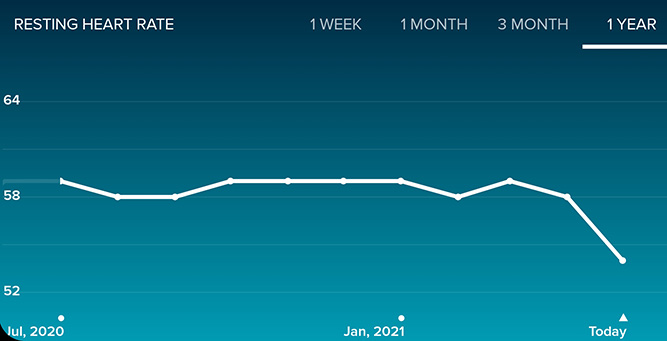
You can see that my resting heart rate dropped rapidly after giving up alcohol and sugar. And a lower resting heart rate is generally a good thing. My comparative fitness for men my age also jumped by a few points according to the app.
I pulled the data out as the graph looks impressive but doesn’t have clear numbers. You can see the changes in the table below:
| Week | Average bpm |
|---|---|
| 29 March – April 4 | 60 |
| 5 April – 11 April | 59 |
| 12 April – 18 April | 60 |
| 19 April – 25 April | 58 |
| 26 April – 4 May | 54 |
I’m still reflecting on this data as I write, as I image it’s going to be hard to work out exactly what caused this change. Was it the alcohol, the sugar, the extra sleep, the extra energy to spend on exercise? And how much of an impact did the COVID-19 pandemic have on my stress levels?
These questions remain unanswered for now, and once again give me cause to think I should continue the experiment for longer.
What other benefits did I feel?
Other than feeling like I slept better and the surprising improvement to my resting heart rate, what else did I notice after quitting alcohol and sugar?
Well, quite a lot actually!
First, let’s revisit the points I mentioned at the start that had motivated me to do this.
- My skin definitely improved. All the flaky dry skin on my lower legs and arms completely disappeared. It actually cleared up in the first 10 days, so I was really happy about that. All but one of the cuts on my fingertips has healed. The last one was the deepest, but it’s nearly healed too. I think I need to stop using strong washing up liquid to seal the deal on that one.
- I haven’t had a single mouth ulcer all month. I can’t remember a month in 20 years in which I didn’t get at least one.
- I feel much less bloated after eating. Only twice did I have a ‘bloat attack’, and both times it was after treating myself to some crisps and non-alcoholic beers (Doom Bar and Peroni are my favorites).
- My energy levels have been much more stable. I just don’t have sugar crashes any more, which was driving the energy level highs and lows I think. It’s really nice to glide through the day with an even keel.
- My mood has lifted. I don’t get irritated by people or situations much, my patience has improved, and my anxiety is better. One surprising thing that happened is I stopped biting my fingernails for only the second time in my adult life. If you’ve watched any of my video reviews, you might have noticed my stubby fingernails.
So overall, I’m really pleased with the benefits I’ve gotten out of this experiment. All of the health problems I was having that I thought might in some way be related to sugar and/or alcohol have gotten better.
Ironically, my sleep is the only one I still think could be improved more. So I’ll be keeping a close eye on that for the next month to see if it just needs more time to adjust.
There have also been unexpected benefits, or ‘effects’ as I’ve been calling them. One is brighter, whiter eyes – something my family keep commenting on. Another is better concentration while working – I’ve been able to write for much longer without needing a break.
I’ve found I’m slightly more supple, and some of the more challenging yoga poses I do haven’t creaked my joints in the same way. And I’ve also found I’m more focused and calm during my yoga/meditation routine. I enjoy taking the time to really get into it, rather than sometimes rushing it so I can start work.
I’ve been really enjoying cooking new recipes. I bought the book ‘kick sugar’ by James Goolnik, which has lots of conveniently simple and tasty meals to work your way through. It’s also a great primer on sugar and why it’s worth taking some time to assess how it impacts your health.
Finally, although it wasn’t something I was particularly interested in, I’ve definitely lost a bit of weight.
Have I missed sugar and alcohol?
This is a tough question to answer. I actually thought it would be really hard to give up sugar, but it wasn’t and I don’t miss it enough to consider eating it again at this point and losing all the benefits of not eating it.
Admittedly, my sense of smell seems heightened for sweet smells now, and when kids in my family waft cupcakes near me, my brain tingles. But I still don’t feel like caving in and scoffing them all down in a glorious return to my sweet tooth ways.
There are plenty of savory snacks that I like just as much, and fruit keeps me happy when I have a craving for sweetness.
The alcohol is a tougher one to explain, and I’d have to write a whole article to explain my relationship with it for you to understand my feeling about it.
Yes, I miss wine with a meal. And yes, I miss having a few beers with my friends. But I’m okay with good non-alcoholic drinks, and I have plenty of practice socialising while sober.
I do wonder if I’d be fine with alcohol and without sugar though. At the same time, however, I have a sneaky suspicion the alcohol was partly responsible for some of the problems I was having.
So until I feel like doing an experiment where I only quit one of the two, I think I’m going to tough it out and do another month without either. But it does feel like I have to tough it out, because unlike the sugar, I do miss it if I’m completely honest.
I’ve been reading ‘The Naked Mind’ by Annie Grace, which is a fantastic book about alcohol to help keep me motivated. So if you’re looking for some inspiration, that book and/or the Kick Sugar book are two I recommend checking out.
Let’s go for another month
If you’ve read this far (thanks for your patience) you’ll probably have realized that I’m feeling pretty positive about the whole no booze or sweet stuff thing. So much so, that I’m already into month two as I type this.
I’m really keen to see if my sleep gets any better over time, and to see what else happens to my health and sense of well-being. I think I need more time to really unpick how my body responds to such a strict lifestyle change. And considering how dramatic some changes have been in just a few weeks, I’m excited to see what happens next.
Will there be a month three, four and beyond? I’m already convinced there will be for the sugar. But being so strict where alcohol is concerned is a decision I’ll be taking one day at a time I think.
Your thoughts
Have you given up alcohol or sugar before? How was it for you? Are you thinking of giving up one or both? I’d love to hear from you, so please share your story or thoughts in the comments below.

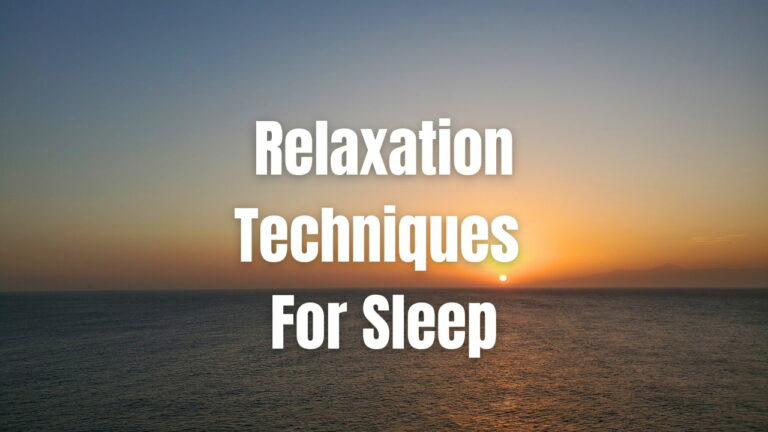
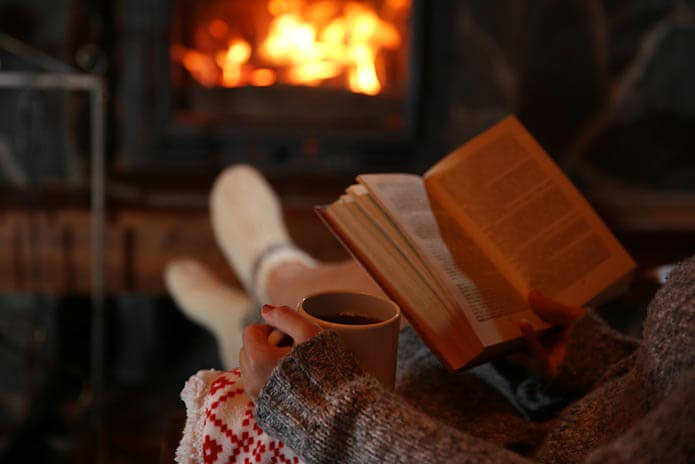
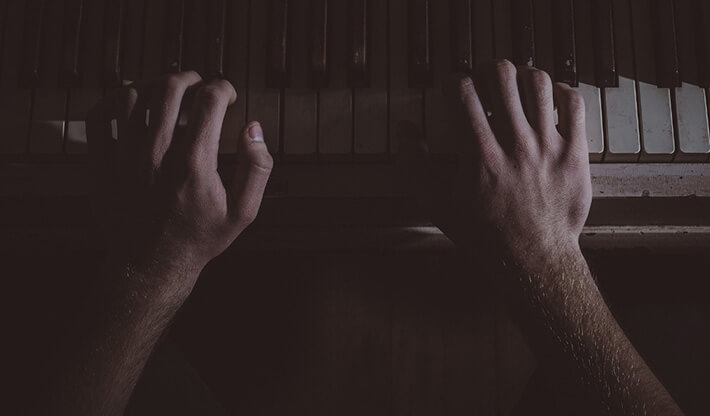
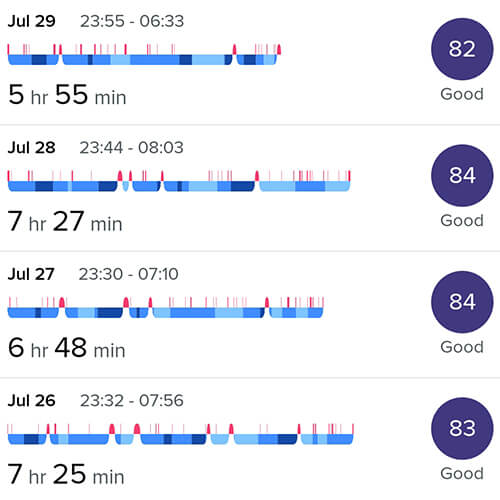
We both decided to stop Alcohol, sugar, wheat, chocolate, cakes, honey, for one year started July 20th 2024. The difference is amazing and neither of us miss anything we stopped. The first two weeks were tough for me as I loved very sweet things for over 70 years. Taking 3 and sometimes 4 teaspoons of suger in tea and coffee. Alcohol was easy as I never liked the effect of a hangover. Claire was never a sugar addict like me, except for chocolate like me. After the year is up we know we will never go back as we both feel so well. Best wishes Tim and Claire
Hi Tim and Claire
Thanks for your comment and for sharing your experience. Good work on getting so far into what is not an easy thing to do!
It is good how noticeable the benefits are, isn’t it? I will don’t drink all this time later, and am still really good with the sugar. It’s harder as it creeps up in everything, but it’s easy enough to avoid sweets, chocolate, and cake etc.
Let me know what you decide after a year if you remember this article!
All the best
Ethan
Hi Ethan
Thanks for your article, I give up alcohol and sugar then slip back but my slip ups are getting less and less as determined so still positive I’ll get there. A big driver is how alcohol affects both the quality and duration of my sleep, it severely impacts it, eg from 7hrs uninterrupted to 3 to 5hrs, it’s a long night being wide awake after 3 to 5hrs. Overall the benifits areI a huge improvement in my skin, energy and mood so onwards and upwards… Thanks again, Georgina
Hi Georgina,
You’re welcome, I hope you found it helpful in some way. Thanks for sharing your experience too. I think giving up both alcohol and sugar is no easy task in the world we live in. They are just everywhere, and there are a surprisingly low number of people I meet that seem to ‘get’ the idea of giving up sugar completely. Alcohol yes, but sugar less so in my experience.
I wish you all the best in your continuing efforts to get past each slip up. It does get easier over time, especially if you keep those very noticeable benefits in mind I think.
All these years later, I still don’t drink, and still don’t eat sweets, biscuits, or cake etc. So it can be done, and for a long time.
Hey Ethan,
I know this is a few years since you wrote this blog post, but super interesting to read now a couple of years later.
I’ve always been fairly fit and healthy but certainly the older I get, it becomes a more important aspect of my life. This year I decided to train for a physique competition and as a result I stopped drinking (dead calories!) and tracked all my food… all junk went out the window and everything I consumed was cooked from fresh. I agree with so much of what you have written and I feel very aligned with most of your outcomes. It really does feel like a cloud has been lifted… a cloud that I didn’t realise existed before!
Hi Jay,
Thanks for your comment. It’s nice to know the article is still being read all this time later! Well done for putting so much effort into your health too. The cloud lifting is a great way to describe it!
Good luck with your competition – I hope it all feels worth it in the end:-)
Regards
Ethan
Hey! This was so helpful! I gave up alcohol 6 months ago and sugar and junk food two weeks ago. My resting heart rate went down similarly to yours and I am so relieved to read this! My former RHR hovered around 60 which made me really happy but now it is hovering around 55!!! I was worried about it and couldn’t find too much online. Thanks for sharing and good luck! I feel amazing!!!!
Hi EJ
Good to hear you liked the article! Congratulations on giving up alcohol and sugar, that’s a great achievement. It’s encouraging to see that your resting heart rate has gone down as a result of your healthy lifestyle changes. A lower resting heart rate is generally a sign of good cardiovascular health, so keep up the good work. It’s always important to listen to your body and make changes that are good for you. Best of luck to you too, and keep feeling amazing.
Hi Ethan
I was happy to stumble across your post. I’m 42 and have been a regular drinker for probably the last 10 years on and off
I’ve made a choice to kick the alcohol and am week 2 into. I have been monitoring my sleep and RHR too and have similar patterns. At first I started to panic as to why my HR was dropping so low to sub 60 and thought I had brachycardia (thanks to google searching) but reading alot of blogs it puts my mind at ease a little knowing it is a normal side effect of alcohol abstinence.
Hi Dan,
Thanks for your comment and for sharing your experience. Good work on giving up the alcohol! I can understand the worry about noticing changes like that. If you do have health concerns while quitting, keep in mind that you can always discuss it with your doctor.
Good luck with it, and I wish you strength!
Ethan
My normally youthful face has suddenly succumbed to wrinkles. The shock of this change has prompted me to research exhaustively. Aside from medical issues, aging skin is also caused by the glycation process that’s induced by sugars and the body’s response to them. Unfortunately, giving up sugar on its own isn’t enough, since refined carbs such as white bread become sugar once digested. There are videos on YouTube about glycation glycation end products (AGEs). Simple lifestyle changes can make a big difference over time. Intermittent fasting can protect against insulin resistance and magnesium supplementation can help to regulate sugar levels.
But life is meant to be lived. A philosophical question: to indulge and enjoy but to pay a health price later, or to hold back for the sake of ‘health’ and enjoy life less?
Hi Ella
Thanks for your comment. Interestingly, I’m now certain that being this ‘clean’ has improved my skin hugely. I’m now over a year and a half without added sugar or alcohol, and still feel the benefits, so I hope your skin also improves if you make some adjustments.
As for your question, well, my 94 year old gran asks me the same thing all the time when I turn down her cakes, funnily enough!
I have two answers:
1. When I was younger, I did a lot of indulging and living, so I don’t feel like I have missed out when looking at the length of my life as a whole. I think we can enjoy life in that way, and then at some point make healthier decisions when we are ready to.
2. I think it depends on your definition of ‘enjoy life’. Nowadays, I really enjoy going to regular dance classes on sundays when others are nursing hangovers, doing long hikes, sea swimming in the morning, playing cards in the evenings etc etc. I feel like I enjoy life 100% and don’t even consider the things I eat or drink to be factors in my assessment of how much I enjoy life. I think the secret to being healthy and to still enjoy life is just to have a think about how important the things we consume and forget about not long after anyway really matter.
Do fun things rather than eat fun things, and life will still be enjoyable. It’s as simple as that…in theory…
Regards
Ethan